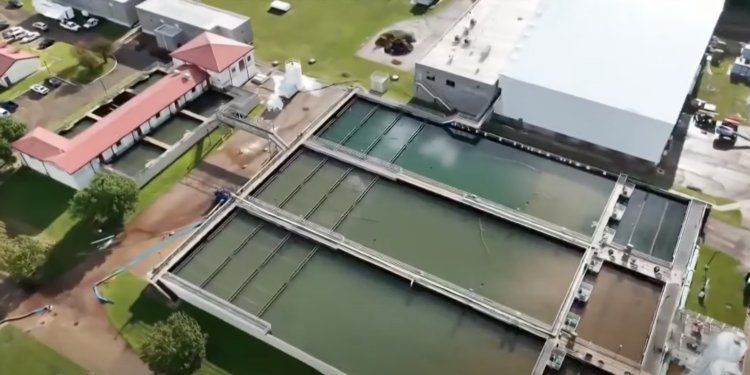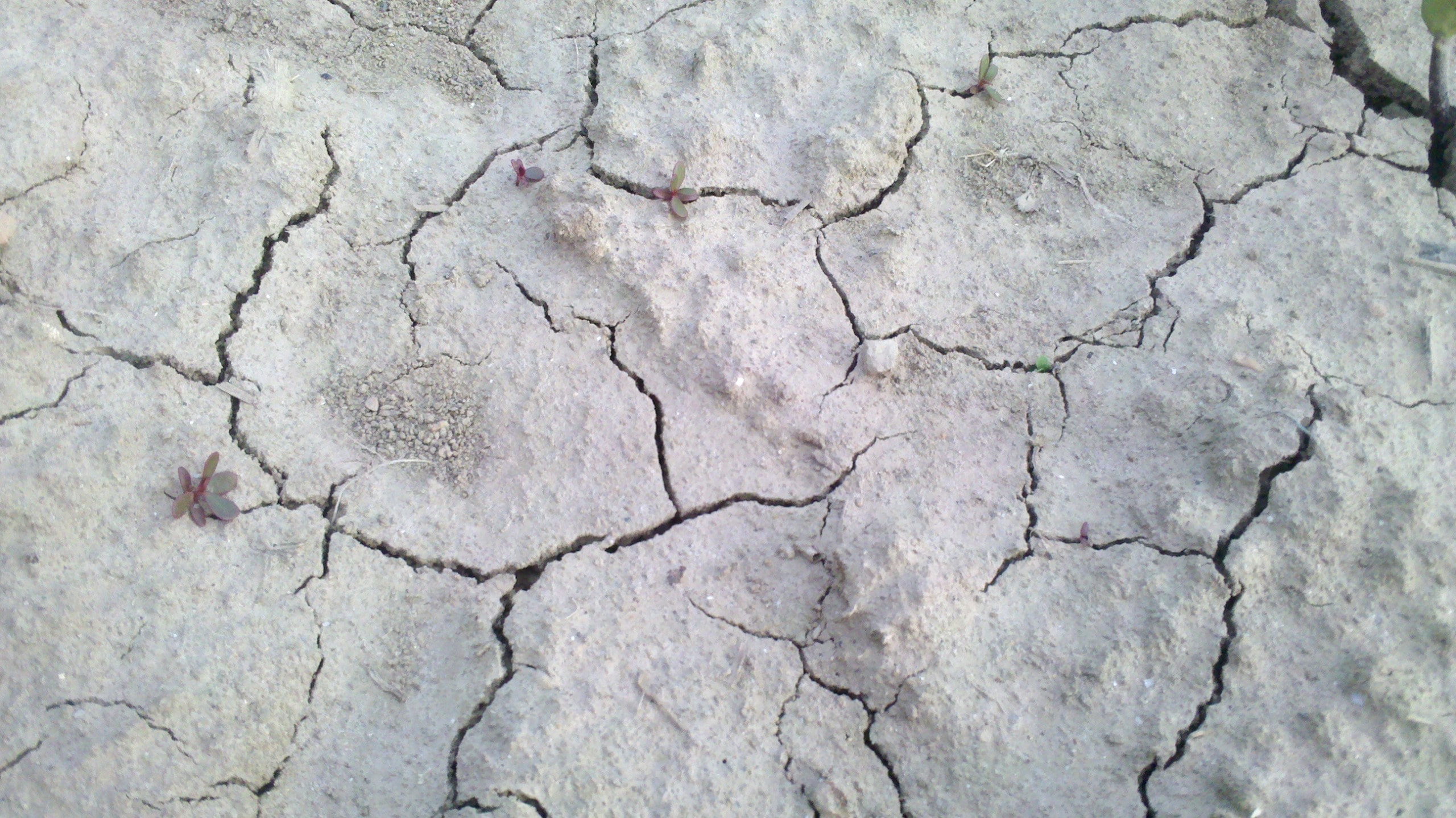In 2021, a severe storm knocked out the Jackson, Mississippi water tower for a month. This was just the beginning of an ever-growing water crisis that has plagued and will continue to plague residents indefinitely.
This past week, heavy flooding in Jackson led to the largest water tower in the city to fail completely, leaving 150,000 residents without water to drink, bathe or even flush toilets with.
This event came amid rising concerns in the US and around the world over the impact of severe weather that scientists blame on climate change, as it was part of a series of storms that recently hit the Midwest and the South in the United States. Damaging winds, heavy rains and flash flooding were blamed for the deaths of three people, including a 14-year-old girl electrocuted by a power line and an 11-year-old boy who died after he was swept into a storm drain during heavy rainfall.
On Thursday, Governor of Mississippi Tate Reeves declared Jackson’s continuous water crisis an “immediate health threat, yet experts note this wasn’t just a sudden occurrence — a water crisis has been building up for years.
Over the past several years, leaders of the majority-Black, Democratic city have been pushing for additional funding from Republicans who run the state to fix the water infrastructure in Jackson, but no funding has been provided — their inaction has now left thousands of residents to suffer the consequences.
Why residents are left without access to clean water
Jackson’s latest water emergency began Monday morning as one of the largest water plants in the city, the O.B. Curtis Water Plant, failed due to severe flooding from the Pearl River.
Officials suffered setbacks to fix the water plant Friday after chemical imbalances and reduced water pressure failed to restore the plant to its previous state.
As of yesterday, residents entered their sixth day without access to clean water, many struggling to find water in grocery stores as supply becomes less than the demand.
On Tuesday, U.S. President Joe Biden’s administration approved an emergency declaration to give 75% federal funding to assist the state for 90 days.
This morning, I spoke with Mayor Lumumba regarding the water crisis in Jackson, Mississippi.
I’ve declared a state of emergency and FEMA, EPA, and the Army Corps are coordinating with the state to get clean and safe water to families. pic.twitter.com/xV6bcZK2TU
— President Biden Archived (@POTUS46Archive) August 31, 2022
On Thursday, state officials announced water reimbursements were on their way, with 108 tractor-trailers filled with water coming to Jacksonville. 600 Mississippi National Guard troops were also deployed to assist at seven water distribution sites across the state’s capital.
Reeves promised at least one of the water treatment pumps should be repaired next week, although when the water will be fully restored is still unknown — experts note the water pipes below the city could burst from increased water pressure at the plant.
Jackson, Mississippi has a population of 150,000 residents — all of which have been left without access to clean tap water for a “week” — but, as several residents reported, the issue of clean water has been happening in the community for a while now.
In fact, since July 30, residents have been officially advised not to drink water without boiling it first.
An old problem ignored, the water crisis now deepens
According to the Washington Post, many residents have been struggling with the water in Jackson for well over a year now.
Tammie Williams, a resident of South Jackson, mentions Jackon’s water mismanagement has led to repercussions on her life and her granddaughters.
The same water from the Pearl River that led to the O.B. Curtis Water Plant to shut down also caused her pipes to burst, leaking sewage all over her bathroom floor and yard. Despite multiple calls to the city, a week later the sewage still remained in her yard.
Officials told residents that although the water isn’t drinkable, the water is clean enough to use for washing purposes.
However, Williams notes after several baths, both her and her granddaughter had developed what appears to be allergic reactions.
“We were looking a little like Hunchback of Notre Dame. … I had a lump here, and her cheeks were really rosy,” Williams said. “You can’t even shampoo your hair or anything.”
Kwame Braxton, a visual artist who lives in West Jackson, said he’s also been struggling with inadequate water access for at least a year and a half.
Braxton mentions for a year one of his toilets has had difficulties flushing and the water in his pipes has a brownish tint.
During a winter freeze last year, Braxton’s water pipes burst, flooding his front yard and quadrupling his water bill. He said it took over 3 months and multiple phone calls for the city to send a technician down to repair the damage.
“It really is just government mismanagement and a lack of caring about what happens in the inner-city community,” Braxton said. “You go to these different communities outside of Jackson and you can see the difference; they will put funding towards fixing their infrastructure over there.”
Between 1980 and 2020, Jackson’s population fell more than 25% as access to clean water and other issues in the city failed to be addressed by the government. Now in Jackson, the resident population is down to 150,000 people — 83% of which are Black.
Once again, another Black city is facing a water crisis.
Jackson, Mississippi is 83 percent Black. Flint, Michigan is 54 percent Black.
These crises are not caused by accident. They're caused by intentional neglect toward Black and brown communities.https://t.co/MfzAjTDaWm
— Keith Boykin (@keithboykin) August 31, 2022
Environmental racism: where does it stem from?
One of the biggest contributors to the environmental racism so commonly seen throughout America is the development of so-called “redlining” in 1933.
During the peak of the Great Depression, in an effort to deal with housing shortages the federal government created a program to increase housing.
As a result, redlining was created as an effort to provide housing to primarily white middle-class and lower-middle-class Americans — excluding Black families and pushing them toward urban housing projects.
The program lasted more than 40 years and led to the majority of Black communities located in areas with polluted industries such as landfills, oil refineries and waste treatment plants.
As of today, these areas still exist in America.
The area known as Cancer Alley is a prime example of this environmental racism and injustice.
Formerly home to hundreds of Lousianna plantations, the area along the Mississippi River now reads “here lies Cancer Alley” the home of 150 oil refineries and factories that pollute the drinking water, air and health of communities all along the river.
For decades, the predominantly black communities have suffered the highest cancer rates in the nation because of the overwhelming amount of pollution.
In 2022, investigators at the Tulane Environmental Law Clinic conducted a study looking for correlations between air pollution and cancer rates in Louisiana, specifically along the Mississippi River (Cancer Valley) and between Baton Rouge and New Orleans.
According to investigators, a significant correlation was found between cancer rates and low-income Black communities.
In their analysis of the area between Baton Rouge and New Orleans, St. John the Baptist Parish had the highest pollution-related cancer risk of 1501.1 per million — largely contributed to a neighboring facility that emits a carcinogen called chloroprene — a highly dangerous cancerous and dangerous carcinogen to humans.
Political infighting delays funding for necessary infrastructure improvements
Prior to the latest water crisis in Jackson, residents and city officials have been trying to acquire additional funding for infrastructure improvements for well over a year.
The mayor of Jackson, Mississippi, Chokwe Antar Lumumba, had talked to Lt. Gov. Delbert Hosemann multiple times on fixing faulty infrastructure in Jackson.
“I sat down with the lieutenant governor to talk about Jackson’s infrastructure problem,” Lumumba said. “We had a conversation that lasted for about an hour and a half, and he asked everyone to leave the room only to say, ‘Mayor, I need you to give me my airport, and I look at it for about $30 million. So not only am I supposed to be dumb, I’m supposed to be cheap, right?”
The conversation was over a move by legislators in 2016 in what Jackson residents called a racist move to take Mississippi’s Jackson-Medgar Wiley Evers International Airport out of the control of Jackson residents — which they acquired in 1958 — and put it in the hands of regional lawmakers.
According to MSNBC, 70% of Mississippi legislators are white — making the choices and stripping residents of an airport where 80% of the community is black.
Instead of discussing how to restore the communities’ necessary, failing infrastructure that puts the lives of thousands at risk, legislators had their eyes set on something completely irrelevant to the safety and health of the community.
Last year, President Joe Biden passed legislation to provide $111 billion worth of funding to improve the nation’s drinking water systems — but when passed by Congress only $55 billion was provided to help with drinking water.
Other communities have also been struggling with funding for safe drinking water. Officials of New Orleans, a city known for frequent flooding, have put the cost of fixing its water and flooding issues at $3 billion over 10 years.
Yet after the New Orleans City Council passed a non-binding resolution to not investigate reports on abortion, Louisana Attorney General Jeff Landry, told the Louisiana Bond Commission to delay consideration of the $39 million in funds the city needs for flood-control fixes.
Nationwide, citizens are struggling as increased climate-change-related events like droughts and floods leave communities without access to sufficient climate change prevention funding and adequate water supplies.
Without a doubt, water access is becoming a rising concern in America, yet for many, this isn’t new — this has been an issue for years and one that politicians on multiple occasions have failed to address.
Editor’s Note: The opinions expressed here by Impakter.com columnists are their own, not those of Impakter.com –In the Featured Photo: Aerial view of O.B. Curtis Water Plant in Jackson, Mississippi on September 2, 2022. Source: NBC News, https://www.youtube.com/watch?v=-KXXblg_yjg.














